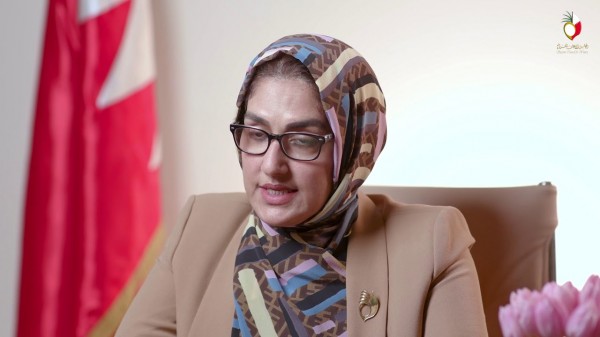Supreme Council for Women an Official Platform for whitewashing Violations against Bahraini Women: HR Report

2022-01-25 - 5:02 p
Bahrain Mirror: Americans for Democracy and Human Rights in Bahrain launched a new report entitled "Women's rights in Bahrain... Postponed dreams". The report says that the Supreme Council for Women is an official platform for whitewashing violations against Bahraini women.
The report sheds light on the current reality of women's rights in Bahrain, and the reality of violence practiced against women in Bahrain as well as Manama's commitment to the Convention on the Elimination of All Forms of Discrimination against Women (CEDAW).
The Supreme Council for Women is closely linked to the Bahraini government, which has always committed systematic violations of human rights, including violations of women's rights. The structure of the Council relies heavily on royal support. The president of the Supreme Council for Women is the king's first wife, Princess Sabeeka, and all senior positions in the council are appointed by royal order. By the Council's own admission, the King is the founder, is directly linked to it, and it works according to a national strategy based on his vision. Accordingly, the Council's structure does not encourage the objectivity necessary for the effective advocacy for women's rights in the country.
Sometimes, the Council is used as a mechanism for the government to whitewash its human rights violations. The mere existence of the Council legitimizes the government on gender issues. In the past, it has been cited as evidence of Bahraini women's empowerment. The Council focuses on promoting Bahrain and highlighting the development of women's rights in Bahrain, ignoring the many human rights violations taking place in the country.
On 20 March 2021, at a meeting held on the sidelines of the 65th Session of the United Nations Commission on the Status of Women, the Secretary-General of the Council "shed light on the strides that the Kingdom has made in the area of women's empowerment", while ignoring systematic gender discrimination in Bahraini nationality legislation.
The report confirms that legislation in Bahrain remains discriminatory and fails to address urgent reform. For instance, the Penal Code still permits the rapist to escape criminal charges if he marries the victim, and gender discrimination can also be observed within the same family and in nationality laws.
Also, many Bahraini mothers are not able to grant citizenship to their children, rendering many children stateless, with none of them enjoying basic rights. Additionally, gendered wage inequality persists in the public and private sectors, and women's rights are still restricted in terms of their political participation.
The report issued by the Americans for Democracy and Human Rights in Bahrain indicated that this reality prevails despite the Kingdom of Bahrain's ratification of a number of agreements to protect women's rights and highlighted the gaps surrounding local legislation and laws, presenting the reality of violence against women in Bahrain.
The Legal Fatwa and Research Department of the Legislation and Legal Opinion Authority in the Kingdom of Bahrain recently stated that the official statistics of domestic violence cases in the Kingdom of Bahrain in 2015 amounted to 1,655 cases, 75% of which were practiced against women. In the first half of 2016 they recorded, 859 cases, more than half of the total cases in the previous year and 73% of these were against women.
The Center also indicated in its study that the Women's Legal Support Office of the Women's Union annually received 114 cases of women who experienced violence before it was closed in January 2016 due to the suspension of financial support by the Ministry of Labor for Social Development.
- 2024-07-10Bahraini Authorities Summon Head of Sanabis Ma'tam, Threaten "Actions" Due to Mourners' Chants Against Israeli Occupation
- 2024-07-10Political Prisoner Mohammad Al-Raml's Family Say He's Vomiting Blood Due to Poor Conditions, Fear for His Life
- 2024-07-09Ali Al-Majed Arrested After His Return to Bahrain
- 2024-07-08Yusuf Al-Muhafdha: Convicted Returnees to Bahrain Have the Right to a Lawyer, Retrial, and Legal Guarantees
- 2024-07-08Reciter Mahdi Sahwan: Head of Manama Police Informed Me of Ban on Reciters Traveling to Commemorate Ashura